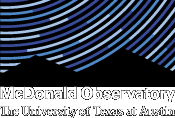Giant Magellan Telescope Begins Primary Mirror Support System Testing
The Giant Magellan Telescope, of which The University of Texas at Austin is a founding partner, today announced the successful installation of one of its completed 27.6-foot-diameter (8.4-meter-diameter) primary mirrors into a support system prototype at the University of Arizona’s Richard F. Caris Mirror Lab.

